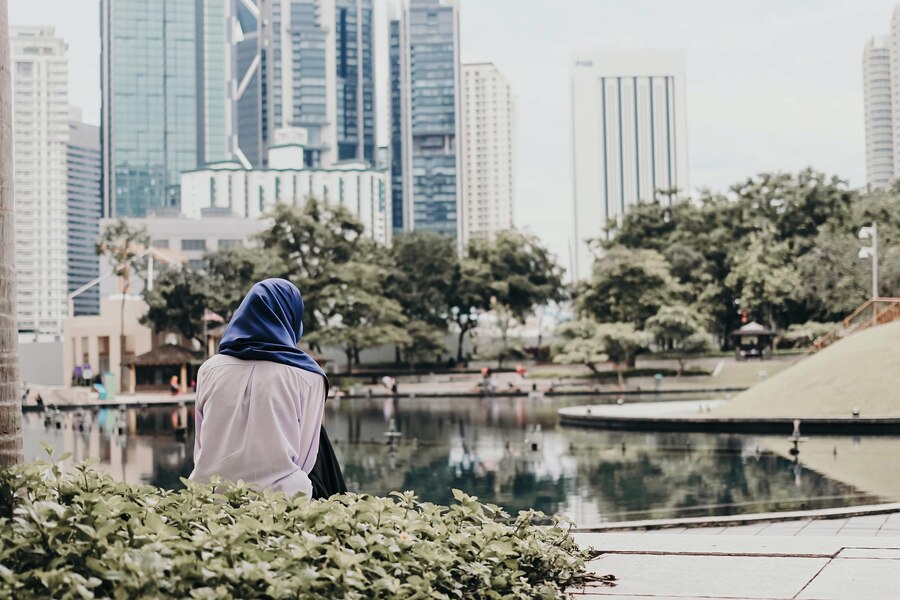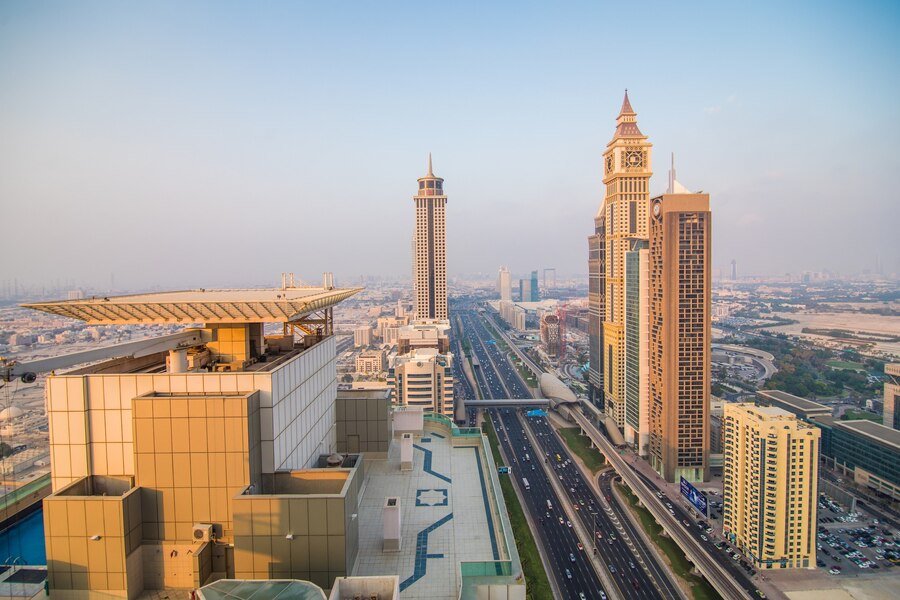Living In Riyadh: Finding Opportunities In The Desert Metro
by Abdul Aziz Mondal Finance Published on: 14 March 2024 Last Updated on: 21 March 2024

Riyadh, the capital of Saudi Arabia, is a rapidly growing city with a family-friendly lifestyle. It features an expanding healthcare sector and a rich history.
Therefore, the city attracts digital nomads and expats due to its vibrant culture, exciting attractions, and world-class facilities.
Riyadh is also the Kingdom’s financial and political hub.
It is one of the Arabian Peninsula’s largest cities and the third-biggest in the Arab world, behind Cairo and Baghdad.
This huge expanse of land is home to several foreign communities, comprising 40% of expatriates from various countries.
This guide is for new employees and enthusiasts, preparing to move to Riyadh and adapt to their new life in the city.
We will help you understand the cultural implications of the city and how to discover your career in this desert.
Living In Saudi

Here are the three most important factors that you must take care of when planning to live and make a living in Riyadh—
Visa & Documentation
Living and working in Riyadh can be beneficial for individuals seeking comprehensive information about the residency program, Saudi Premium Residency, also known as the Saudi Green Card, is a new initiative introduced by the Kingdom of Saudi Arabia to attract foreign investors.
General requirements include the following documents:
- An employment visa.
- A valid passport with at least six months’ validity.
- Police clearance certificate.
- Medical examination.
- Education and work experience certificates.
- A signed contract or letter of employment from the Saudi employer.
- Recent passport-sized photographs.
Moreover, one might need additional documentation depending on specific circumstances and Saudi government regulations.
Consult the Saudi embassy for a premium residency in saudi. Moreover, you must consulate for accurate information and work closely with the prospective employer to ensure all necessary documentation is in order before traveling to Saudi Arabia.
Many expatriates working in Saudi Arabia may require a sponsor or employer to navigate the visa process.
Working closely with the sponsor or employer is advisable to ensure all necessary documentation is in order before traveling to Saudi Arabia.
Accommodation
In Riyadh, expat housing options vary based on personal preferences, budget, and the specific area.
Compounds and gated communities offer pools, gyms, playgrounds, and convenience stores.
Apartment complexes range from high-rise buildings in the city center to more modest accommodations in various districts. Villas and houses are popular among expats, especially those with families or seeking more space.
These options often include amenities like security, maintenance, and recreational facilities. The cost of living varies based on the type of housing and its location, with higher-end options generally being more expensive.
Companies may provide housing allowances as part of their employment package, affecting the choice of accommodation.
Moreover, family-friendly areas in Riyadh include international schools, parks, and community facilities.
Working with a reliable real estate agent or consultancy is advisable to navigate the local rental market and understand local customs, regulations, and tenancy laws before renting a property in Saudi Arabia.
Job Life Specifications

As Saudi Arabia adopts the Vision 2030, Riyadh finds a new promise to create a vibrant business society. This culture also concentrates on the growing role of women in the workforce.
The country is set to improve business operations by incorporating higher transparency, accountability, governance and ethics under greater scrutiny.
Moreover, with the National Anti-Corruption Commission in 2011, Saudi Arabia improved its ranking on the Corruption Perceptions Index by Transparency International.
Also, work-life balance is rare in Saudi Arabia. This implies that expats often have to work hard and save money.
In 2018, seven new courts were established to hear labor law cases. However, violations of foreign workers’ rights remain problematic, particularly in manual labor.
Employers often confiscate workers’ passports who require permission to leave the country upon arrival.
There are no trade or labor unions in Saudi Arabia. Islam is a cornerstone of life. Therefore, for any individual working in Riyadh, scheduling events and meetings around prayer times is important.
The Cultural Aspect Of Riyadh

Saudi culture is a blend of traditional and conservative values influenced by Islam.
It values respect for elders, strong family bonds, and hospitality. Islamic customs, such as daily prayers and fasting during Ramadan, are widely observed.
Here are some of the most significant aspects of Riyadh’s cultural influence:
- Working practices are flexible.
- Reduced hours during holy months.
- The school week is Sunday to Thursday, with Fridays off.
- Arabic is the official language.
- English functions as an informal second language.
Moreover, Muslim expats in Saudi Arabia live a lifestyle based on Islamic values. They have easy access to Mecca and Medina.
However, as a conservative city, Riyadh respects local customs and cultural norms. Hospitality is a key aspect of Saudi culture, with warm welcomes and generosity from locals.
Family is central to Saudi culture, and social activities often revolve around family gatherings. Riyadh offers a variety of experiences, from traditional markets to modern malls and restaurants.
How To Find A Job In Riyadh?
Riyadh, the capital of Saudi Arabia, is a diverse city with a diverse economy. The city has numerous government institutions and the public sector, with most employees being Saudis.
However, many foreign residents work in the service sector, such as hospitality or taxi driving.
The Saudi government recognizes the importance of diversifying the economy to end its dependence on the petrochemical sector and ensure the national economy doesn’t collapse once oil reserves are exhausted.
This diversification opens up new opportunities for foreign companies, investors, and expatriates in the following fields:
- Information and communication technology.
- Natural gas production.
- Power generation and renewable energies.
- Transportation.
- Recycling.
- Wastewater treatment.
- Desalination.
- Medical equipment and healthcare.
The government’s plan to support other industries is also a chance for foreign companies, investors, and expatriates interested in working in Riyadh.
End Note
Most expats in Riyadh work for the diplomatic service or have come via intra-company transfer to a Saudi branch office.
Therefore, one must join a foreign business association or contact a foreign chamber of commerce to find a job.
These organizations often have member directories of international companies in Saudi Arabia, providing access to a comprehensive list of businesses from your home country.
If your business travels to the Middle East, join networking events. Riyadh is a popular location for trade fairs in Saudi Arabia.
Expat women may need help to secure employment opportunities outside of healthcare and education.
However, to explore the labor market for women, you can check the websites of Riyadh’s private and international schools, universities, and hospitals.
As women working in retail is a relatively new concept, expat women can’t find work in this sector due to the push towards total Saudisation.
Read Also:







































































































